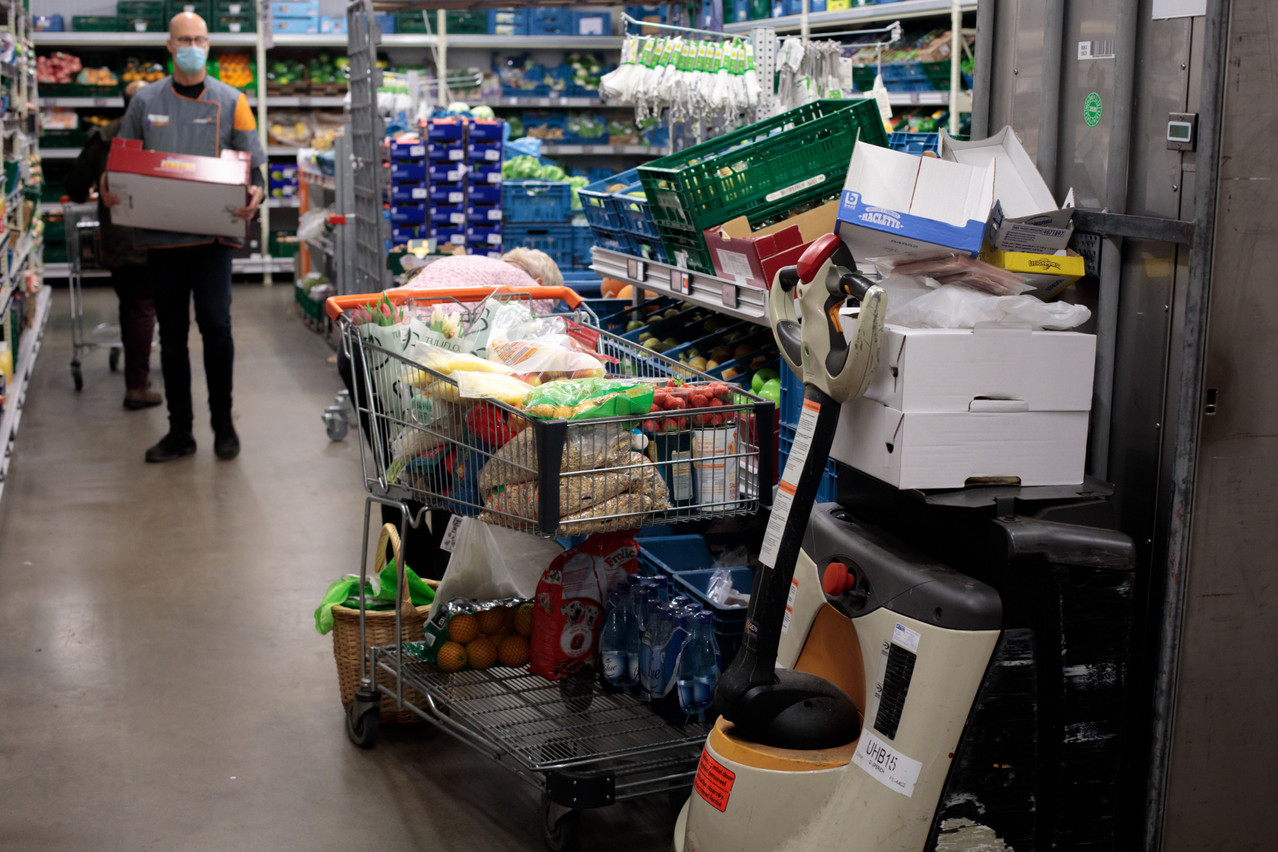In December, prices rose by 5.4% in Luxembourg over one year, compared with 5.9% , announced on Monday 9 January. The annual decline in the inflation rate is the result of a decrease in the price of petroleum products.
At the pump in December, motorists paid 11.5% less for a litre of diesel and 12.3% less for a litre of petrol. The cost of heating oil fell by 18%. However, despite this month-on-month decline, the prices of oil-based products remain very important in the national consumer price index basket, accounting for 15.8% of the basket compared to December 2021.
Wage indexation will wait
As a direct consequence of this decline, the next wage indexation will not take place in January. Last July, in drawing up a central scenario, Statec estimated that a . For the time being, with the inflation rate falling and the annual core inflation rate dropping by 0.3 points to 4.6% in December, the indexation mechanism will not be triggered.
Read also
More technically, the general index for the month of December expressed in base 100 in 2015 is 117.06 points. The half-yearly average of the index connected to the 1.1.1948 base rises from 963.34 to 963.76 points. “The next indexation will therefore be triggered when the value of 964.64 is reached,” Statec states in its latest analysis, without giving a precise date for when this index bracket will be crossed.
The indexation tranche initially planned for last July, and postponed in accordance with a tripartite agreement, will be automatically triggered on 1 April. This will put an end to the compensation mechanism created to help households and indirectly help employers, the energy tax credit (CIE).
More expensive fresh vegetables and fish
While the prices of petroleum products have fallen, this is not the case for all the other elements of the consumer basket. With the exception of fees for non-formal education (-15% following the entry into force of the law on free non-formal education), many items have risen.
Read also
Food prices in residents’ shopping carts are up by 0.5% year-on-year. The biggest increases compared to the previous month were for fresh vegetables (+5.1%), fresh fish (+4.8%), baby food (+2.7%) and breakfast cereals (+2.2%). In contrast, prices for fresh fruit (-2.4%), bread (-0.5%) and pork (-1.4%) fell compared with November. In annual comparison, food prices are 11% higher.
Airline ticket prices soar
On the services side, price increases (+0.4%) for meals and beverages in restaurants and cafés were recorded. Moreover, at the end of the year, seasonal movements have a strong inflationary influence on the overall result. Thus, due to the school holidays, air ticket prices rose by 30.1% compared to November. For package tours, the price increase was limited to 10.3%. As a result of promotions in December, full-service telecommunication offers were down by 7.3% compared to November.
As a small consolation, alcoholic beverages decreased by 0.9% compared to November as a result of end-of-year promotions on the prices of spirits and liqueurs (-2.5%) and wine (-1.4%, including sparkling wine).
This story was first published in French on . It has been translated and edited for Delano.
